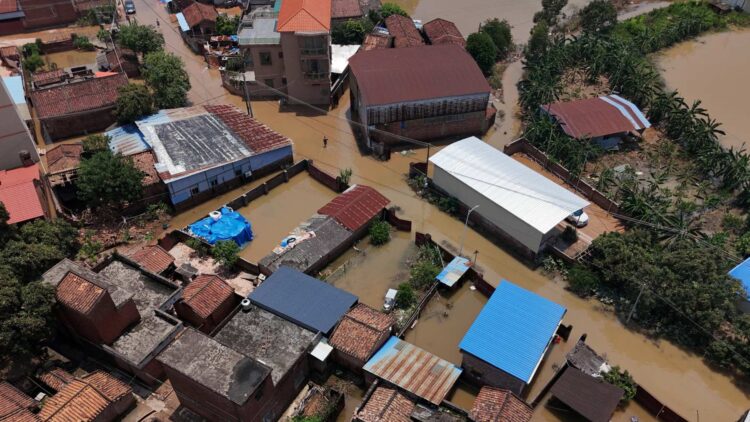It is one thing to be warned of a bad natural disaster, but not knowing about it? That is hurtful, and China is not happy. At times, when a typical day starts with the idea that it will end similarly, everything feels stable. Individuals go about their daily lives, taking care of their loved ones, maintaining their homes, and making plans for the future. However, tomorrow does not always come as planned. Life can suddenly change in ways that leave whole communities in shock and unsure of how they can ever bounce back. The Chinese community were left shocked and devastated at the same time.
Guangdong Village hit by the worst flooding in a century after record rainfall
The several hundred residents of Pingtou, a village in China’s subtropical south, have seen plenty of typhoons and rainstorms over the years. But nothing prepared them for this week’s flooding – the worst there in generations. Knee-deep brown water still covered the main road into the village in Guangdong province on Friday. it frightened a lot of people because they did not see it coming at all.
Residents dragged damaged furniture and home appliances out of their homes, at least four of which collapsed in the downpour earlier this week. One villager aged in his 50s, who asked to use only his surname Zhong said,
“The older folks here say that in the 100 years we’ve been here, they’ve never experienced such flooding.”
Floodwaters have never before entered his two-storey house, but this time they surged in, wrecking many of his belongings. Watermarks on the walls of nearby houses were more than a metre (3.3 feet) high. It was not immediately clear if anyone had been killed in the village. A record 622.6 mm (24.5 inches) of rain fell on Guangzhou, the provincial capital, from August 2 to 6 – almost three times the average monthly rainfall for the city in August.
Lethal China floods raise money for relief, But villagers say there is not enough help
At least seven people were killed due to flooding there, state media said. China has been battling with record rainfall in its north and south as well as prolonged heatwaves in its interior. The government announced on Thursday 430 million yuan ($59.9 million) in fresh funding for disaster relief, taking the total allocated since April to at least 5.8 billion yuan.
But in Pingtou, villagers said they were not getting enough support from local authorities to deal with the aftermath. Zhong said he was told by officials that there was no relief aid available to deal with the floods. He said,
“There was not even a bottle of mineral water provided to us.”
Emotional damage and the pursuit of accountability, safety and comfort
In addition to destroying infrastructure and buildings, the floods have damaged public confidence in local government. Villagers claim they feel abandoned because they should have been warned, in addition to the fact that assistance was delayed. The anguish of losing homes and livelihoods is exacerbated by the intense sense of betrayal, and this is very similar to how Japan’s tsunami alert stirs Fukushima memories.
Officials have pledged to look into what happened, but locals say they are more concerned with obtaining food, clean water, and temporary housing. Everywhere you look, you can see the emotional cost. People talk about the permanent loss of cherished items, including family heirlooms, photographs, and children’s education. The devastation entails starting over from scratch in rural communities where livelihoods frequently rely on land and cattle, and you can imagine those who are now forced to leave the country without anything, like the migrants headed home after calling it impossible.
GCN.com/Reuters


